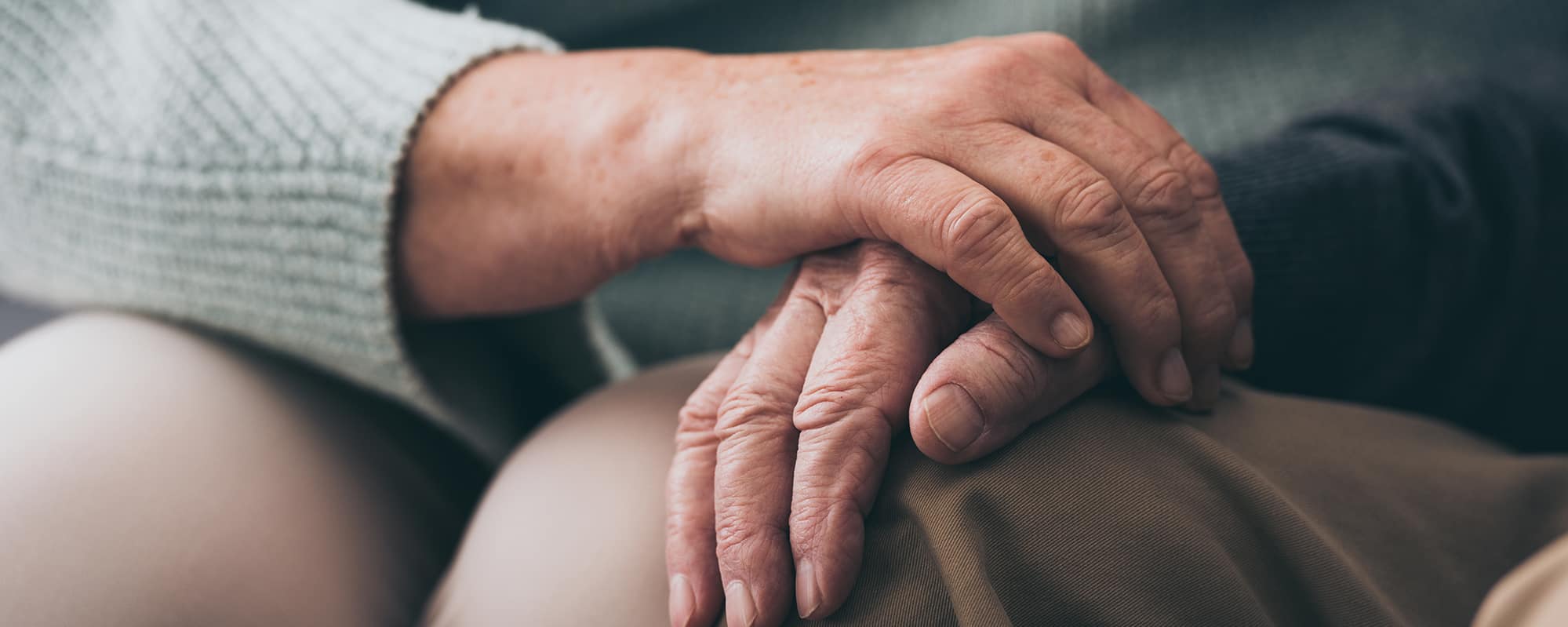Alcohol
Health
How to cope with elderly parents drinking with dementia

by Christine Humphreys
Published: February 09, 2021 Last updated: November 30, 2023

Elderly people with dementia can benefit from alcohol-free drinks putting worried children’s minds at rest.
But you may be surprised exactly how it can be used to help some people with conditions such as Alzheimer’s.
Many older people who may have been moderate drinkers in their younger years can develop hazardous drinking habits in their old age increasing their risk of dementia.
When people retire from work, they sometimes find it difficult to fill their day. The boredom and loneliness can cause some people to turn to drink, and they are less likely to be able to keep track of the units of alcohol they consume in a week.
They may never have previously had an Alcohol Use Disorder – which includes alcoholism but also includes less serious alcohol abuse – but it’s very easy for the odd glass of wine to become bottles of wine, and quickly develop into heavy drinking. What may start off as a drink per day can easily escalate, especially when their concept of time is affected.
Alcohol as a friend
This is even more likely when the older person finds themselves alone as a result of the loss of a spouse and less than frequent visits from their family who may live in another city.
Leaving work can mean losing contact with former friends, and, as mobility deteriorates, people may find their social activity and social circles diminish.
They can find themselves home alone with only daytime TV for company so their quality of life suffers and that’s when the risk of comfort drinking can lead to heavy drinking.
Researchers have shown that retirement often coincides with hazardous drinking and their findings highlight that – in some cases – this can develop into dependency and increase dementia risk.
This can be even worse when elderly people are prescribed medications that may interact with their drinking to increase intoxication. It can also heighten the risk of organ damage such as liver disease even with moderate drinking.
The result is an increased risk of harm from injuries from falls, forgetfulness, and the danger of excess alcohol consumption contributing to the onset of alcohol-related dementia or worsening of existing dementia and premature death.
The effects of drinking also adds to the risk of health problems such as high blood pressure, increases the risk of heart disease, plays havoc with diabetes control, adds excess weight, causes memory loss and increases confusion in a person with dementia.
And all this is further magnified by a likely lack of regular exercise and a poor diet.
There is even a link between drinking in moderation and the risk of stroke and cancer, and excess drinking can lead to a lack of vitamins and minerals such as thiamine which can impact on their mental health and lead to depression.
This can often be a concern for middle-aged children who discover the levels of alcohol their parents are drinking and putting themselves at risk of worsening symptoms of dementia.
Alternatives to help improve the situation
Putting alcohol out of reach can be a bad move as some elderly people will climb step ladders or kitchen chairs to reach the bottle and add to their risk of injury.
The ultimate answer would be to ban alcohol in the house but that’s not always an option when parents with sufficient mobility can walk to the off licence and stock up.
In some of these cases, we’ve found our middle-aged customers buying alcohol-free drinks for their parents – but their parents are not always aware that their drinks are alcohol-free.
In one case a daughter had parents who would forget they had already consumed a bottle of wine, find the drinks cabinet empty and trot off to the off-licence and buy more.
This daughter’s solution was to buy a full pallet of alcohol-free wine to store in her parents’ garage so they would never find the wine rack empty.
This was one of the more drastic situations – in most instances children would have wines or beers delivered by the case to their parents who would be unaware they weren’t drinking ordinary wine.
In other cases parents may enjoy a glass or two of their favourite tipple, but their children would substitute subsequent glasses with alcohol-free alternatives.
Alcohol-free wine and beer is also purchased for people in residential care who are advised against drinking alcohol.
The benefits of alcohol-free drinks, especially as part of a balanced diet, includes helping people increase their fluid intake, helps maintain healthy blood cholesterol levels, is lower in calories than fruit juice and generally reduces health risks.
The ethical dilemma
Although it may seem cruel to dupe elderly people, experiences of finding intoxicated parents on the floor, or suffering the effects of stomach trouble lead some families to make the decision to intervene. And in the cases that we know about, the parents are never aware of the lack of alcohol content in the drinks. They are as happy as they would be drinking ordinary wine or beer.
When a parent’s drinking behaviour raises health risk factors, some families feel a little white lie is the better choice for an elderly parent’s long-term care.

About The Author
Christine Humphreys
Chris Humphreys is the co-founder of The Alcohol-Free Shop and AlcoholFree.com. She was a journalist for more years than she cares to remember. Ex-wife of an alcoholic, enthusiastic amateur musician and a passionate dog lover.
5 Films About Alcoholism You Simply Must Watch
January 14, 2023

Celebrate your first week of sobriety – and stay motivated!
January 08, 2023

Saturday Night and Sunday Morning: How Staying Sober Can Lead to a More Productive Sunday Morning
January 07, 2023

5 Secrets to achieving Sobriety any time of year
January 03, 2023

10 Simple Tips For Your First Sober Christmas
December 23, 2021

How long before I stop thinking about drink?
February 01, 2021

What’s one thing you’re proud of since you’ve been sober?
September 21, 2020
